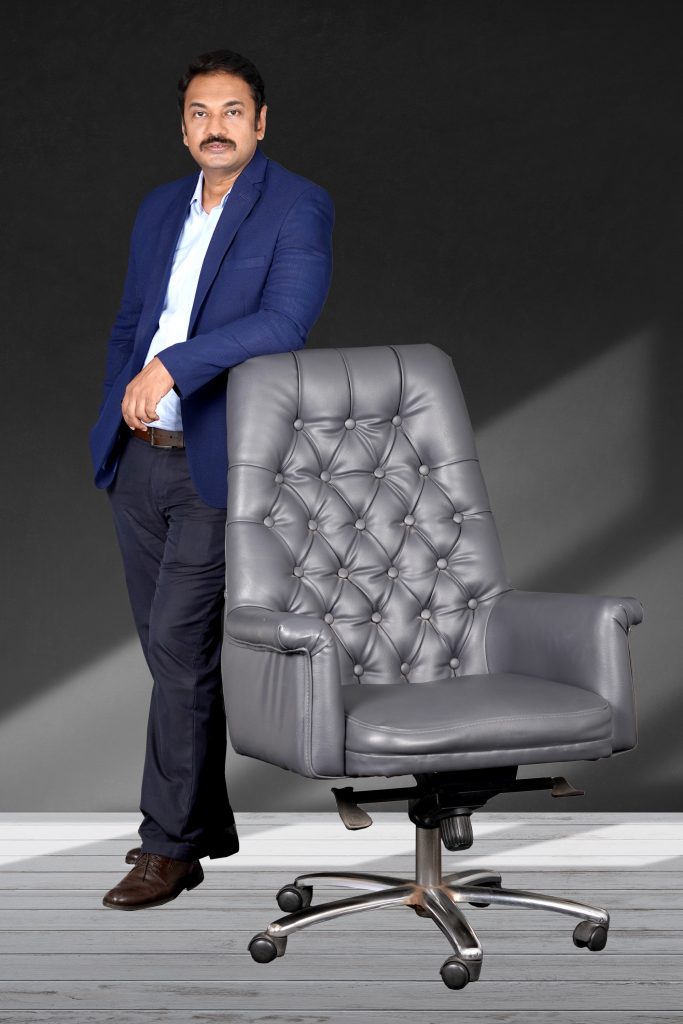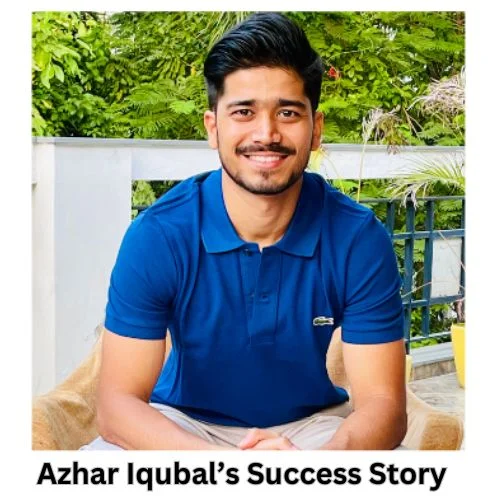Education is one of the major contributing factors to a well-structured personality. Many people are passionate about education and one such passionate educationist who perhaps needs no introduction is Dr. George Panicker. He is also an accomplished entrepreneur and author. “Education is a Human Right, so is Right Education, but never let Education limit your Knowledge” says Dr. George Panicker.

He believes that by the time one leaves school, the curiosity level of a student should not be sapped out of an individual. Inspired by Sir Ken Robinson about the urgent need to empower schools to encourage creativity made him think about the best possible ways to address it in a sustainable manner. Dr. Panicker came to the conclusion that in order to encourage creativity, curiosity must be ignited in every learner. Students must be encouraged to stay curious constantly. Schools must encourage risk-taking, celebrate failure as a means of learning and not condemn it as a sign of incompetence. Students must be helped to build a holistic view of everything through a Design Thinking process, become good communicators, build resilience, embed purpose in what they do, and think about ethics.
However, all this is easier said than done, for many schools may have their own set of challenges and pain points that could act as hurdles in creating an ideal environment to address these pressing needs of today. Nevertheless, fact remains that the need for schools to provide the opportunity for its students to be future-ready is inevitable and this is exactly where Dr. Panicker says, his venture, International S.T.E.A.M Research (ISR), makes all the difference by partnering with schools and solving their problems. In fact there is no other STEAM education service provider in India that offers the model which ISR does. There are several awards and accolades to validate it as ISR has been bestowed with several International and National awards such as the Go Global, Atmanirbhar Bharat Award, Global Business Icon Award, Bengal Pride Award, Brand of the Year Award, and many more apart from it being an ISO Certified Company. In order to make sure STEAM education services provided to the learners are of international standards, ISR has partnered with globally recognized organizations and institutions like Google, IBM, Adobe, Strawbees – Sweeden, TED Circles, Artec – Japan, Jugend Eine Welt – Austria, Don Bosco University, Amity University and many more.
Dr. Panicker possesses a Doctorate along with an Engineering and Business Management degree. Additionally, he is a US-certified STEM expert. Dr. George Panicker, Founder & CEO of ISR, is the S.T.E.A.M expert from India who was one among the Judges of the prestigious Raytheon Technologies Invention Convention US Nationals powered by Henry Ford for two consecutive years. Needless to state that the recognition ISR has achieved so far globally is extraordinary.
Dr. Panicker has always worked on large projects, mostly in the education sector, in various countries with global organizations in the past and the most important goals of all these projects were for them to be impact oriented and sustainable. In other words, all projects were intended to give a positive long-term result although no one has any control of the future. With his rich experience, having worked and interacted with various thought leaders and educationists from across the globe, he came to the conclusion that the only way to be prepared for the future of work is to embrace the idea of helping all learners to be future-ready.
Knowledge today doubles every 18 months and IBM estimates that the internet doubles every 12 hours. This calls for a serious question to be answered; ‘Is it right to summarize everything a student needs to know about a subject into a few hundred-page textbook to be memorized, or is it better to empower them with the skill of how to find the answers to the questions with the responsible use of technology? Futurists have agreed with Dr. Panicker that over 70% of the students in our current k-12 school system will do a job in the future that does not yet exist.
Perhaps most would agree that our current educational system is stuck in a bygone era and is in need of a desperate change. The 3 R’s of Education, Reading, Writing and Arithmetic is not enough, for today’s students must also be proficient in the 4 C’s Critical thinking, Creativity, Communication and Collaboration. Today employers do not value college degrees as much as they value agility and adaptability, the ability to do complex problem solving, creativity, people management. emotional intelligence, and cognitive flexibility. Students cannot exercise these skills by just sitting in a classroom of rows of desks taking notes while a teacher lectures at the front of the room.
“We can all agree that technology is developing itself at an exponential pace, however, we also need to be mindful that the adaption time it takes for us to adapt to something new and fast changing is decreasing dramatically as well. Therefore, those who want to stay relevant in the future must start innovating and build sustainable partnerships” cautions Dr. Panicker.
Thanks to technology, today students have the amazing capabilities to personalize their learning all within a global network. So we have moved on from content learning to collaborative learning to discovery learning to experiential learning to lifelong learning.
On his return to India in the year 2017, Dr. George Panicker along with his friend Capt. Shaji Sebastian and co-founder & mentor of ISR, decided to address the need in the education sector of India by empowering schools with Experiential Learning through S.T.E.A.M Education with Futuristic Technologies. This led to International S.T.E.A.M Research (ISR) being founded.
College education is effective in preparing graduates for the workplace yet only a very small percentage of employers hold this to be true. In 2018 McKinsey reported that 94% of engineering graduates are not fit for hiring, while Aspiring Minds, Survey report of March 2019 reported that only 3% of engineers have new age technological skills. As a result more than 50% of recent college graduates are either unemployed or underemployed. This situation is rather alarming.
Dr. Panicker believes that the best way forward is for schools to facilitate students to think about their thinking by indulging in Experiential learning with a hands-on methodology and sharpening their Metacognitive Skills. The proven methodology to implement Experiential learning is through integrated S.T.E.A.M (Science, Technology, Engineering, Arts and Mathematics) programmes. STEAM promotes growth and change in mental processes related to thinking, reasoning, memory and other areas of brain development acquired from a consolidation of knowledge gained through experiences. The experiential nature of learning and constructing knowledge is the core concept of constructivism and integrated STEAM education.
Experiential learning through a hands-on methodology, also known as the kinaesthetic approach, allows the learner to critically think and learn through trial and error without the fear of failure, igniting their minds to bloom creatively. An environment where a learner can touch, feel, and learn by doing rather than just rote-learning promotes invention literacy by making things and relate it to the real world and their textbook topics and experience it.
ISR STEAM activities, based on the ISR 7E and CRM 360 frameworks, in a STEAM Lab aka ‘Happy Zone’ in schools allow students to collaborate with each other in small groups to solve real-world problems through hands-on inquiry and open-ended exploration which connects various subjects through a design-thinking process. Students solve real-life problems wherein they can learn by themselves and arrive at the right option despite multiple failures. This process allows them to develop and hone their Heutagogical skills.
The Brand ISR L.I.F.E (Life-Long Innovation & Futuristic Education) speaks for itself. ISR is committed to empowering schools/institutions with integrated Science, Technology, Engineering, Arts and Mathematics (STEAM) Experiential Learning Labs with futuristic technologies such as Robotics, Drone, AI, AR, VR, IOT, Applied Coding etc, for multiple types of learners within the classroom to discover and explore, eliminating the fear of failure. However, it is imperative to state that this cannot be achieved by ISR alone without the collaboration between all stakeholders in the education sector.
“There is no greater feeling of satisfaction for me personally than those moments when our partner schools are recognized and appreciated by relevant authorities for their sincere efforts to work together with us and make a sustainable change for the future” says Dr. Panicker.

“Having understood the SCERT Kerala report, the recommendations of VIF Task Force, the NEP-2020, as well as the need for a therapeutic approach for our students, it was time for us to take the much-needed crucial positive steps forward. Our students have been having an extraordinary experience within our STEAM Lab called ‘Happy Zone’, ever since Experiential Learning was introduced at DBHSS” – Fr. Tony Cherian, Principal of Don Bosco Higher Secondary School, Kerala.
“Dr. George Panicker is a real changemaker with the promotion of STEAM-Education through ISR, partnering with Jugend Eine Welt and Don Bosco Institutions. I appreciate his love for people, especially the young ones and his professionalism expressed in quality work, handshake quality, sustainability, trust and good humor. That´s a very good “curriculum” for a better education and the world!” – Hannes Velik, Jugend Eine Welt, Austria.
“Mr. George Panicker is not only an educationist by profession, but by heart and that makes him special and able to reach not only to the minds, but also to the hearts of the pupils” – Piot Gozdalski, SDB, Don Bosco Poland.
“George has been an exceptional educationist always at heart and has worked in the field of education for over 20 years. His rich experience of the holistic pedagogy (for the development of “head, hand and heart”) will definitely benefit the education sector in India” – Hans-Jürgan Dörrich, Vice President Don Bosco International, Bonn/ Germany.
“International STEAM Research (ISR) is doing remarkable work in the field of education by empowering schools pan India to facilitate Experiential learning through S.T.E.A.M activities. I firmly believe that the integration of S.T.E.A.M activity-based learning using Futuristic Technologies will help children be ready to face life challenges. I am convinced that Partnering with ISR is one of the best things I have done for our students to make their school a happy place for learning.” – Sr. Rani Jacob, Principal of Our Lady Queen of the Missions School, Kolkata.
“Innovation is the way forward and George Panicker’s initiative to promote invention literacy through hands-on Experiential S.T.E.A.M Education within the classroom is aligned with the National Education Policy of India. The idea of empowering schools to provide such activity-based education with futuristic technologies to students is a very sustainable model” – Dr. Malini Goyal Former Principal of Mahadevi Birla World Academy, Kolkata and Lokhandwala Foundation School, Mumbai.
“Great souls are reborn in human form as per Hindu Shastras again and again. At times it appears to me that the intellectual dimension of the great scientist Einstein has been reborn in the innovative personality called George Panicker. ISR is the incubation hub for scientific temperament of our times, where the synergy of thinking, feelings and actions are in congruence & crossing the barriers of time” Rajeev Chakranarayan, S.J, Executive Director, Navsarjan, St. Xavier’s Cell for Human Development, Gujarat.
Apart from the global channel partners, presently ISR is working in 10 states in India, i.e. Kerala, Karnataka, Tamil Nadu, Gujarat, Rajasthan, Madhya Pradesh, Uttar Pradesh, Delhi, Meghalaya and West Bengal.
Although STEM, STEAM, Robotics, etc are catchwords being used by many in India, it is important that education institutions partner with the right set of experts to implement these in the schools to ensure the highest ethical and sustainable standards are maintained.
ISR envisions to continue sharing its expertise with as many schools in order to provide programmes based on the principles of STEAM, which are vital for thriving in a competitive economy. “The future job market belongs to the heutagogical and versatile”, concludes Dr Panicker.















